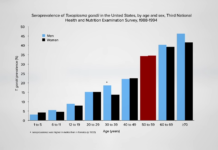Are you struggling with excess weight and frustration over your appearance? It's time to address the underlying cause – Polycystic Ovary Syndrome (PCOS).
This article explores the physical appearance of a PCOS belly, why it happens, and what you can do to manage it. Say goodbye to feeling self-conscious, you're not alone.
Table of Contents
Key Takeaways:
- PCOS can be caused by hormonal imbalances, insulin resistance, and genetics.
- Symptoms of PCOS include irregular periods, excess hair growth, acne, and weight gain.
- PCOS can affect the belly by increasing belly fat, causing bloating, and making it difficult to lose weight.
What Is PCOS ?
PCOS (Polycystic Ovary Syndrome) is a hormonal disorder that affects women during their reproductive years. It is characterized by an imbalance of hormones, resulting in various symptoms such as irregular periods, ovarian cysts, and excessive hair growth.
PCOS can also lead to long-term health complications like diabetes and heart disease. Treatment options include lifestyle changes, such as maintaining a healthy weight and regular exercise, as well as medication to manage symptoms.
It is important to consult with a healthcare professional for an accurate diagnosis and personalized treatment plan.
In 1935, Irving Stein and Michael Leventhal first identified and described PCOS, also known as “the syndrome of polycystic ovaries.”
They observed that women with this condition had enlarged ovaries with multiple cysts and hormonal imbalances. Their groundbreaking research laid the foundation for understanding and treating PCOS, providing hope and support for millions of women worldwide.
What Causes PCOS?
The causes of PCOS, or Polycystic Ovary Syndrome, can vary greatly from person to person. There are three main factors that contribute to the development of PCOS: hormonal imbalance, insulin resistance, and genetics.
Each of these factors plays a significant role in the development of this hormonal disorder, resulting in a variety of symptoms such as irregular periods, excessive hair growth, and difficulty with weight management.
In this section, we will delve into the details of each factor and how it relates to PCOS.
1. Hormonal Imbalance
Hormonal imbalance is a key factor in PCOS, a hormonal disorder characterized by elevated levels of androgen hormones and disrupted female hormones. To effectively manage this imbalance, individuals should consider the following steps:
- Consult a healthcare professional for diagnosis and treatment options, including the possibility of a Male Hormone Testosterone test.
- Maintain a healthy lifestyle by consuming a balanced diet and participating in regular exercise.
- Implement stress management techniques, such as meditation or yoga, to reduce levels of stress.
- Take prescribed medications, such as hormonal contraceptives or anti-androgen medications, to regulate hormone levels and alleviate symptoms.
- Track and monitor menstrual cycles to identify any irregularities and address them promptly.
By addressing hormonal imbalance, individuals with PCOS can effectively manage their symptoms and improve their overall health.
2. Insulin Resistance
Insulin resistance is a major contributor to PCOS, as it causes the body's cells to not properly respond to insulin, resulting in elevated insulin levels. This can lead to various metabolic issues, including weight gain, increased belly fat, and difficulty losing weight.
Insulin resistance also increases the risk of developing diabetes and heart disease.
To manage insulin resistance, it is important to make lifestyle changes such as regular exercise and a balanced diet to improve insulin sensitivity and regulate metabolism.
In some cases, medications like metformin may be prescribed to help control insulin levels.
It is always recommended to consult a healthcare professional for personalized recommendations.
3. Genetics
Genetics play a significant role in the development of PCOS (Polycystic Ovary Syndrome). Here are some steps that explain how genetics contribute to PCOS:
- Genetic factors can influence hormonal imbalance, which is a key characteristic of PCOS.
- Certain genes may affect the production of male hormones like testosterone, leading to hormonal imbalances.
- Genetic variations can impact the development and function of egg cells in the ovaries, contributing to the formation of ovarian cysts, one of the main symptoms of PCOS.
Pro-tip: While genetics can increase the risk of PCOS, it's important to note that lifestyle factors also play a role. Maintaining a healthy lifestyle through regular exercise, a balanced diet, and managing stress can help manage the symptoms of PCOS, including ovarian cysts, effectively.
What Are The Symptoms Of PCOS?
One of the most common and well-known symptoms of Polycystic Ovary Syndrome (PCOS) is the presence of a PCOS belly. However, this condition is much more than just a physical appearance.
In this section, we will discuss the various symptoms of PCOS and how they can manifest in different ways in the body. From irregular periods and excess hair growth to acne and weight gain, each symptom can provide valuable insight into diagnosing and managing PCOS.
1. Irregular Periods
Irregular periods are a common symptom of PCOS. To manage irregular periods, you can take the following steps:
- Track your menstrual cycles and note any irregularities or changes in your flow, including your menstrual history.
- Consult with your healthcare provider to discuss your menstrual history and any concerns you may have.
- Consider hormonal birth control methods, such as the pill or an IUD, to regulate your periods.
- Maintain a healthy lifestyle with regular exercise and a balanced diet to support hormonal balance.
Pro-tip: It's important to remember that every person's experience with PCOS is unique. Finding the right approach for managing your irregular periods may require some trial and error. Stay in close communication with your healthcare provider for personalized guidance and support.
2. Excess Hair Growth
Excess body hair growth, known as hirsutism, is a common symptom of PCOS. This is due to high levels of androgens, such as testosterone, in the body.
Here are steps to manage it:
- Consult a dermatologist or endocrinologist for an accurate diagnosis of thinning hair.
- Consider various hair removal methods like shaving, waxing, or laser treatment to address thinning hair.
- Talk to your doctor about medications like anti-androgens or oral contraceptives to regulate hormone levels and potentially improve thinning hair.
- Adopt a healthy lifestyle with a balanced diet and regular exercise to promote hormonal balance and potentially improve thinning hair.
- Monitor your hair growth and consult your doctor if it worsens or causes distress related to thinning hair.
3. Acne
Acne is a common symptom of PCOS caused by hormonal imbalance. To effectively manage acne associated with PCOS, follow these steps:
- Maintain a consistent skincare routine, including gentle cleansing and using oil-free moisturizers.
- Avoid touching or picking at acne lesions, as this can worsen inflammation and lead to scarring.
- Consider using over-the-counter acne treatments that contain salicylic acid or benzoyl peroxide.
- If acne persists, consult a dermatologist who may prescribe topical or oral medications.
Remember, managing acne is only one aspect of caring for PCOS. Addressing hormonal imbalance through lifestyle changes and medical interventions can also help improve skin health.
4. Weight Gain
Weight gain is a common symptom of PCOS, particularly abdominal weight gain. This occurs due to hormonal imbalances and insulin resistance. Even skinny people with PCOS can experience this. Abdominal weight gain can be determined by analyzing waist-to-hip ratio and body mass index.
Managing a PCOS belly involves a combination of diet, exercise, and medications. It is important to address this symptom as it can increase the risk of diabetes and heart disease. Additionally, the impact on mental health should not be overlooked.
How Does PCOS Affect The Belly?
One of the most common symptoms of PCOS is the presence of a “PCOS belly.” However, this term can be misleading as the appearance of a PCOS belly can vary greatly from person to person.
In this section, we will discuss the ways in which PCOS affects the belly, including increased belly fat, bloating, and difficulty losing weight. By understanding these effects, we can better understand how PCOS impacts the body and how to manage its symptoms.
1. Increased Belly Fat
Increased belly fat, also known as visceral fat, is a common symptom of PCOS. To manage this type of fat associated with PCOS, try the following steps:
- Engage in regular exercise to burn calories and reduce overall body fat.
- Focus on strength training exercises to build muscle, which can help increase metabolism and burn more calories.
- Eat a balanced diet that includes lean protein, fruits, vegetables, and whole grains. Avoid processed foods and sugary drinks.
- Reduce stress levels through practices such as meditation or yoga, as stress can contribute to weight gain and hormonal imbalances.
- Consult with a healthcare provider for medication options that may help regulate hormone levels and reduce visceral fat.
Remember that managing PCOS belly fat is a gradual process, and results may vary. It's important to consult with a healthcare professional for personalized advice and guidance.
2. Bloating
Bloating is a common symptom of PCOS that can cause discomfort and impact body image. It is typically a result of hormonal imbalances and can be worsened by certain dietary habits.
To help alleviate bloating, individuals with PCOS can make dietary changes, such as reducing processed food intake and increasing fiber consumption. Regular exercise and stress management techniques can also be beneficial.
It is important to consult with a healthcare provider to determine the root cause of bloating and to rule out any other potential health concerns.
Additional tests, such as blood tests and a pelvic ultrasound, may be necessary for further evaluation of the condition.
3. Difficulty Losing Weight
Women with PCOS often struggle with difficulty losing weight due to metabolism defects and hormonal imbalances. However, with proper management, it is possible to achieve weight loss. Here are some steps to help overcome this challenge:
- Focus on a balanced diet: Include whole foods, lean proteins, fruits, and vegetables.
- Regular exercise: Engage in both cardio and strength training exercises to boost metabolism and burn calories.
- Monitor body mass index (BMI): Aim for a healthy BMI range to optimize weight loss.
- Reduce subcutaneous fat: Incorporate exercises targeting specific areas prone to fat accumulation.
- Manage visceral fat: Focus on reducing stress levels and following a healthy lifestyle to minimize the buildup of visceral fat.
How Can PCOS Belly Be Managed?
For women with Polycystic Ovary Syndrome (PCOS), managing symptoms such as weight gain and belly fat can be challenging.
In this section, we will discuss different ways to manage a PCOS belly. From dietary changes and exercise routines to medications and lifestyle modifications, we will cover various strategies for reducing belly fat in those with PCOS.
By understanding the root causes of a PCOS belly, we can make informed decisions about how to best manage this common symptom.
1. Diet and Exercise
Diet and exercise play a crucial role in managing a PCOS belly. Here are some steps to consider:
- Follow a PCOS-specific diet for belly fat, focusing on whole foods, lean proteins, and high-fiber options.
- Incorporate regular exercise routines into your daily life, such as cardio exercises, strength training, and HIIT workouts.
- Establish healthy dietary habits, including portion control, mindful eating, and avoiding sugary and processed foods.
- Monitor your Body Mass Index (BMI) and aim for a healthy weight range through a balanced diet and regular physical activity.
2. Medications
Medications play a crucial role in managing PCOS symptoms and addressing hormonal imbalance and metabolic issues. Here are steps to consider:
- Consult a healthcare provider who specializes in PCOS for accurate diagnosis and personalized treatment.
- Discuss medication options, such as birth control pills to regulate periods and reduce excess hair growth.
- Metformin, an insulin-sensitizing medication, can help manage insulin resistance and lower the risk of diabetes and other risk factors.
- Anti-androgen medications can alleviate symptoms like acne and excess hair growth.
- Monitor progress and adjust medications as needed through regular follow-ups with your healthcare provider.
In a clinical trial, Sarah, who had PCOS, found that a combination of medication, diet, and exercise helped her achieve hormonal balance and reduce her risk factors for diabetes and heart disease.
3. Lifestyle Changes
Lifestyle changes are essential in managing a PCOS belly and reducing the risk of associated health issues, particularly metabolic issues. Here are some steps to consider:
- Adopt a balanced diet: Focus on whole foods, lean proteins, healthy fats, and complex carbohydrates to address metabolic issues. Avoid processed and sugary foods.
- Regular exercise: Engage in aerobic exercises and strength training to improve metabolism and manage weight.
- Manage stress: Practice stress reduction techniques like meditation, yoga, or deep breathing exercises to support overall health and address metabolic issues.
- Ensure sufficient sleep: Aim for 7-8 hours of quality sleep each night to support overall health and address metabolic issues.
Fact: Lifestyle changes are crucial in addressing metabolic issues that contribute to PCOS and reducing the risk factors associated with the condition.
What Are The Risks Of A PCOS Belly?
1. Increased Risk Of Diabetes
PCOS belly is a common symptom of PCOS (Polycystic Ovary Syndrome), and it is also a known risk factor for developing diabetes due to its effects on insulin resistance and metabolism.
It is caused by high insulin levels in the body, which can worsen PCOS symptoms. A low GI diet is one of the best ways to manage PCOS and reduce insulin levels.
This type of diet includes foods that are digested slowly and do not cause spikes in blood sugar levels. By avoiding high insulin levels, women with PCOS can reduce their risk of weight gain and other related health problems.
To manage this risk, it is important to take the following steps:
- Regularly monitor blood sugar levels to detect any changes.
- Adopt a healthy diet, focusing on low-glycemic index foods to help stabilize blood sugar levels.
- Incorporate regular physical activity into your routine to improve insulin sensitivity.
- Follow any prescribed medications or insulin therapy as directed by your healthcare provider.
- Maintain a healthy weight, as excess weight can worsen insulin resistance.
2. Increased Risk Of Heart Disease
Women with PCOS are at a higher risk of developing heart disease due to several factors, including insulin resistance, metabolism defects, and hormonal imbalances. Insulin resistance, a common characteristic of PCOS, can result in elevated blood sugar levels and an increased risk of developing diabetes.
Furthermore, metabolic defects associated with PCOS can impact cholesterol levels and contribute to the development of heart disease.
It is essential to be aware of these risk factors and take necessary steps, such as regular exercise, a balanced diet, and medication if needed, to effectively manage PCOS and reduce the risk of heart disease.
3. Impact On Mental Health
Women with PCOS often experience negative impacts on their mental health, including weight gain. The hormonal disorder and imbalance associated with PCOS can contribute to mood swings, anxiety, and depression, which can be further exacerbated by physical symptoms such as facial hair growth and acne.
It is crucial for individuals with PCOS to seek support from healthcare professionals and mental health providers to manage their mental well-being.
Additionally, practicing self-care through regular exercise, a balanced diet, and stress management techniques can help alleviate symptoms and promote overall mental wellness.
FAQs about What Does A PCOS Belly Look Like
What does a PCOS belly look like?
A PCOS belly typically looks bloated and can be either large or small, depending on genetics and other factors. It is characterized by a high waist-to-hip ratio and can feel hard to the touch due to the accumulation of visceral fat in the lower abdomen. Other symptoms might include small cysts on the ovaries, elevated androgen hormones, male pattern baldness, and skin tags.
How can I manage my PCOS belly?
Managing a PCOS belly can be tricky, but it is possible with the right approach. Some tips for reducing a PCOS belly include following a nutritious and well-balanced diet, incorporating exercises that target the abdominal area, and reducing inflammation through lifestyle changes. Consulting with a healthcare professional for personalized recommendations is also recommended.
What are the best exercises for a PCOS belly?
Exercises that target the abdominal area can be beneficial for reducing a PCOS belly. Some recommended options include cardio exercises like running or cycling, strength training exercises like planks and crunches, and low-impact exercises like yoga or Pilates. It's important to consult with a healthcare professional before starting any new exercise routine.
What should my diet look like to reduce PCOS belly fat?
There is no one-size-fits-all diet for managing PCOS, but in general, a diet that focuses on reducing insulin resistance and inflammation can help reduce belly fat. This may include incorporating foods with a low glycemic index, such as whole grains, vegetables, and lean proteins, while avoiding high glycemic index foods like white bread and sugary drinks.
How can I distinguish a PCOS belly from a pregnancy belly?
While a PCOS belly and pregnancy belly can look similar due to bloating and weight gain, there are some key differences. A PCOS belly may feel harder to the touch, have a higher waist-to-hip ratio, and be accompanied by other symptoms such as irregular periods and elevated androgen hormones. It's always best to consult with a healthcare professional for a proper diagnosis.
Are there any clothing options for hiding a PCOS belly?
Certain clothing styles can help minimize the appearance of a PCOS belly. Look for high-waisted bottoms, loose-fitting tops, and empire waist dresses. Avoid tight-fitting clothing, especially around the abdominal area. Shapewear or a support band can also help provide a smoother appearance, but it's important to wear them in moderation and not rely on them too much.
















